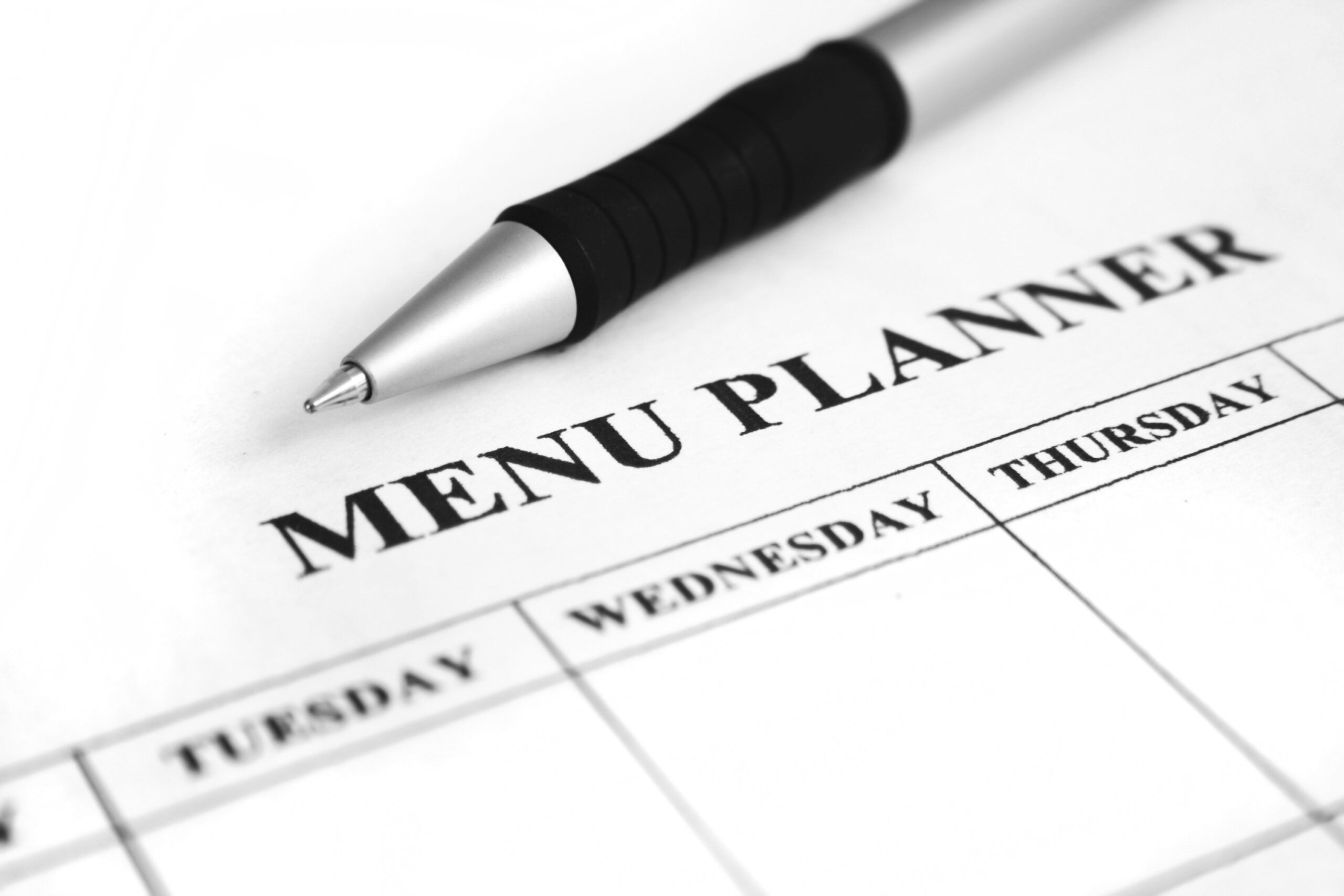Blog

My son’s famous first words these days when we get home after work and school are “Mom, I’m hungry. Can I have a snack?” Since it is usually close to supper, I encourage him to go play and let him know that supper will be ready shortly. And since I plan my evening meals a week at a time, I can get supper on the table in a short amount of time. I know what we are having and have the ingredients on hand. Menu planning is a win-win for us. I’m not stressed out thinking about what we are going to have and my son doesn’t have to wait long to eat when he is hungry.
Eating a balanced meal and saving money at the grocery store are other benefits of menu planning. When you plan your meals, you can take the time to include fruits, vegetables, whole grains, lean protein, and calcium-rich foods in your meals. And when you go to the grocery store, you can be sure to buy these items to have on hand and it prevents you from buying items you won’t need. Here are some tips to successful menu planning:
- Determine what meals you will plan. Since the meal my family eats together is supper that is the meal I spend time to plan. However, you can plan for breakfast, lunch, supper or snacks. I go to the grocery store once a week so I plan my meals a week at a time. You might choose to plan them for more or fewer days.
- Write the plan on a calendar. I write my meal plan on a calendar that hangs in my kitchen. This calendar includes other family activities so I know if we will be gone for a meal at night or have a really rushed evening. My husband knows to look at the calendar to see what we are having.
Another option is the 5-day meal planner on our Spend Smart. Eat Smart. website. Since weekends tend to be less structured for most people, the plan is for only 5 days. The meal planner also has a checklist of the food groups to help you plan balanced meals.
- Check what you have on hand. Check your refrigerator, freezer, and cupboards for foods that need to be used up in the next few days. Think of ways to include these items in your meals. I always plan a night to have leftovers so they don’t go to waste.
- Review the grocery ads for specials you can use. Save money by purchasing items on sale that you can pair with the foods you have on hand to help complete your meals.
- Keep a list of the recipes your family likes best. Having a list helps make meal planning go really quickly because you can easily spot the recipes that use things you have on hand or are on sale. Some recipes my family likes are Beef and Vegetable Stir Fry, Quick Pad Thai, and Crispy Salmon Patties.
For more information on menu planning watch “How to Plan a Menu.”

